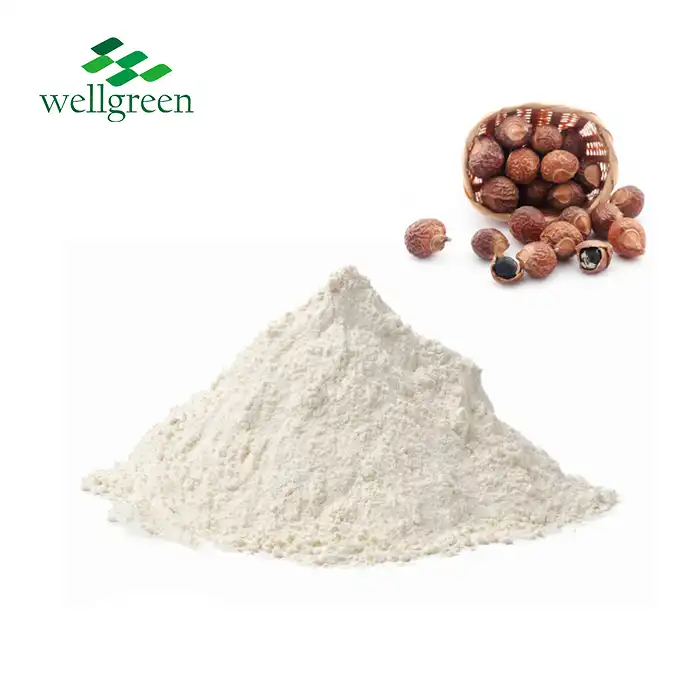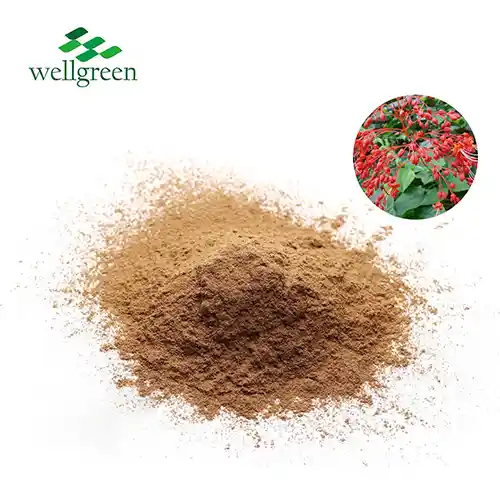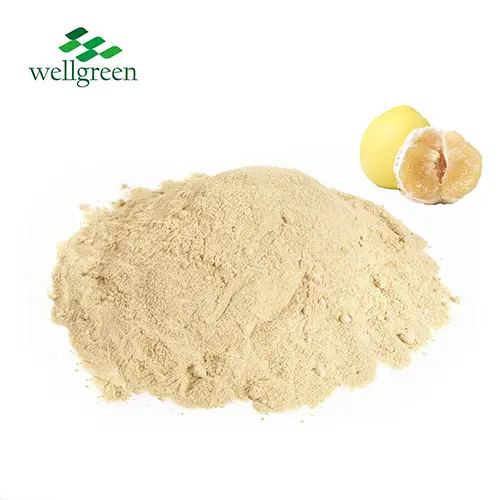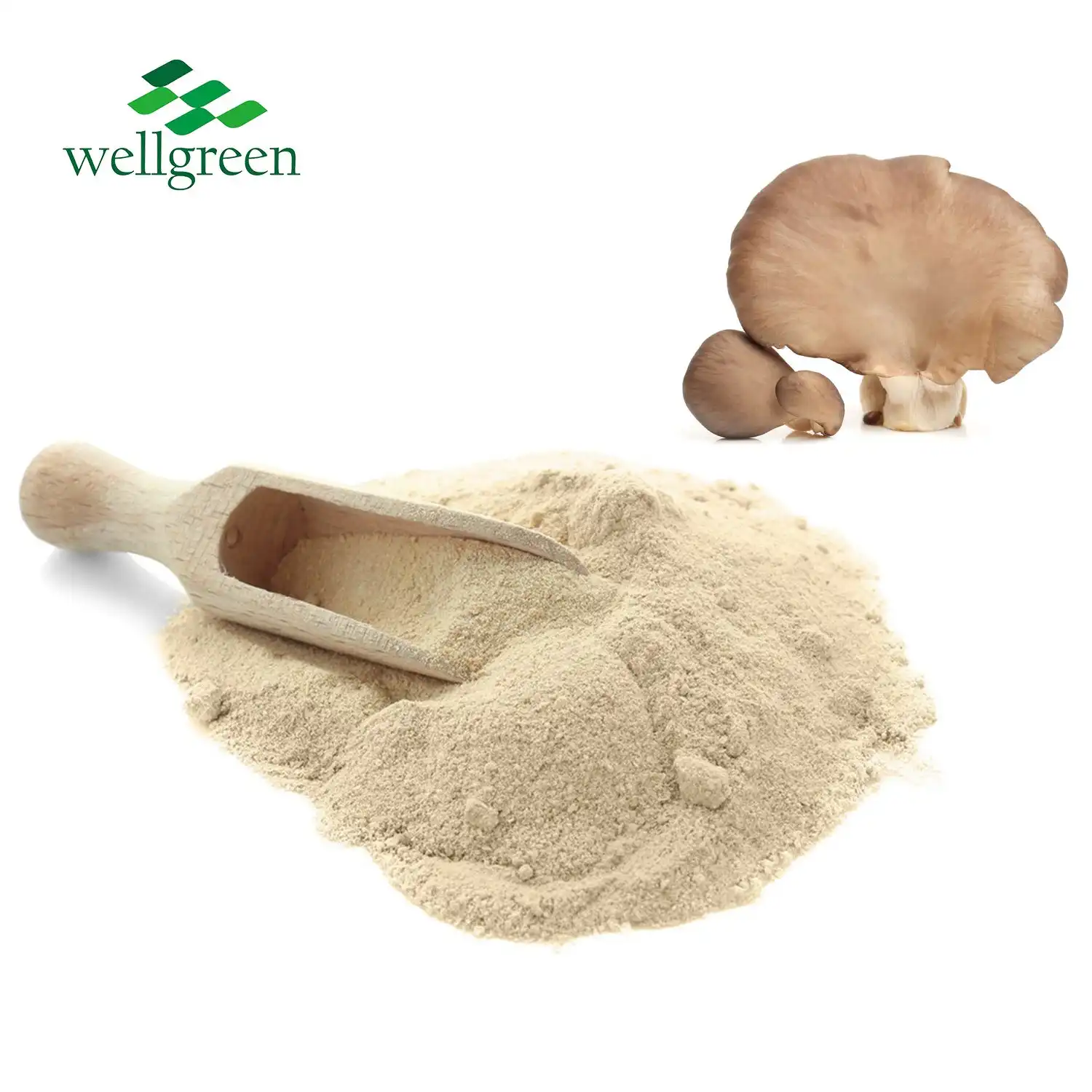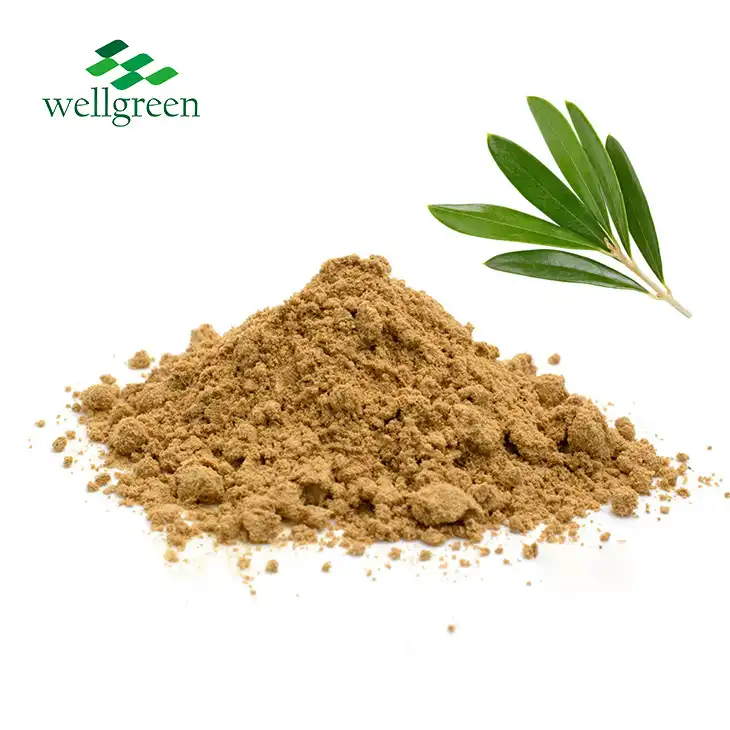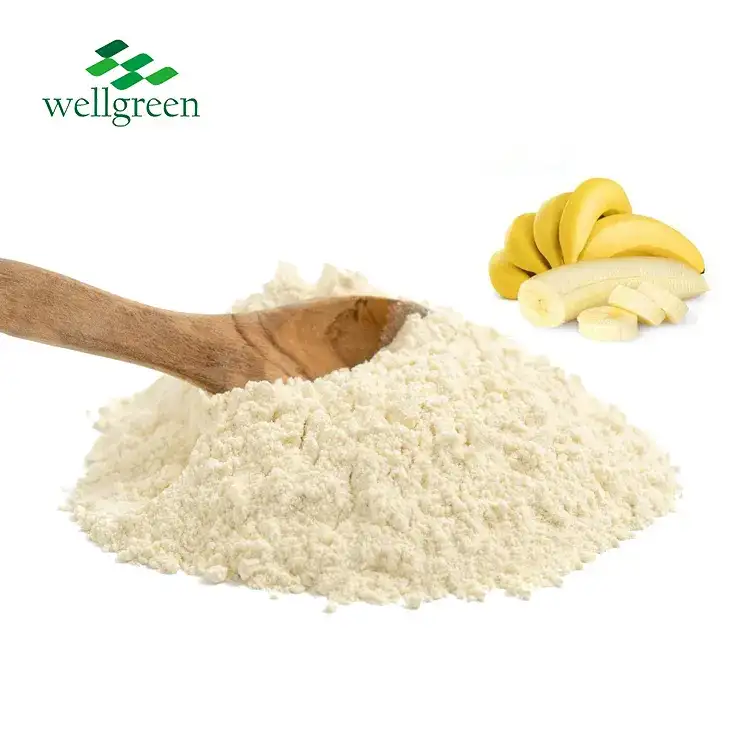What is Lycopodium Used For?
2024-02-20 15:12:36
Lycopodium, regularly known as clubmoss, is a variety of vascular plants having a place with the family Lycopodiaceae. This old gathering of plants has a rich developmental history, going back hundreds years, and assumes a remarkable part in different biological systems. The name "Lycopodium" is gotten from the Greek words "lycos," significance wolf, and "podos," importance foot, potentially recommending a verifiable faith in the plant's capacity to repulse wolves.
Taxonomy and Diversity:
 Lycopodium is a diverse genus that includes both creeping and upright species. The taxonomy of lycopodium clavatum extract has undergone revisions over time, leading to the identification of numerous species worldwide. Notable species within the genus include Lycopodium clavatum, Lycopodium annotinum, and Lycopodium selago. These plants are classified based on their morphological characteristics, including leaf arrangement, strobili structure, and spore production.
Lycopodium is a diverse genus that includes both creeping and upright species. The taxonomy of lycopodium clavatum extract has undergone revisions over time, leading to the identification of numerous species worldwide. Notable species within the genus include Lycopodium clavatum, Lycopodium annotinum, and Lycopodium selago. These plants are classified based on their morphological characteristics, including leaf arrangement, strobili structure, and spore production.
Morphology and Reproductive Structures:
Lycopodium plants are characterized by their small, needle-like leaves arranged in spirals along the stems. The reproductive structures, known as strobili or cones, play a crucial role in the plant's life cycle. Lycopodiums are unique in their homosporous nature, where a single type of spore gives rise to a bisexual gametophyte. This sets them apart from heterosporous plants, adding to their significance in plant evolutionary history.
Ecological Significance:
Lycopodiums exhibit a broad ecological range, thriving in diverse habitats such as forests, heathlands, and rocky slopes. Some species are pioneers in disturbed areas, contributing to soil stabilization and ecological succession. Lycopodiums are important components of various ecosystems, providing habitat and food for different fauna. Their adaptability to different environments underscores their ecological significance and highlights their role in maintaining biodiversity.
Cultural and Historical Significance:
Certain lycopodium species hold cultural and historical importance. Traditionally, lycopodium powder, derived from the spores of specific species, was used for various purposes. In some cultures, these plants have ceremonial significance and are utilized in rituals or traditional medicine. The historical uses of lycopodium underscore the deep connection between humans and these ancient plants.
All in all, lycopodium is a captivating variety of vascular plants with a different scope of species that have continued through huge number of long periods of development. Their novel morphology, regenerative designs, and biological flexibility add to their importance in both scientific and social settings. As we proceed to investigate and comprehend the intricacies of vegetation, lycopodium clavatum extract stays an enthralling subject for specialists and nature devotees the same.
What is Lycopodium Q Used For?
Lycopodium Q, also known as lycopodium mother tincture, is a diluted form of lycopodium extract. It is commonly used in homeopathy to treat various health conditions. Some of its uses include:
Promoting Digestive Health: Lycopodium Q is often prescribed for digestive disorders such as bloating, flatulence, and indigestion. It helps to improve digestion and relieve discomfort in the gastrointestinal tract.
Treating Urinary Tract Infections: Lycopodium Q has diuretic properties and can assist in treating urinary tract infections. It helps to increase urine flow and flush out harmful bacteria from the urinary system.
Addressing Skin Issues: Lycopodium Q may be beneficial for certain skin conditions like eczema and psoriasis. It helps to reduce inflammation and promote healing of the skin.
What are the Side Effects of Lycopodium 200 mg?
A common homeopathic remedy is lycopodium, which comes in a variety of strengths. Lycopodium 200 mg, specifically, is a strength that is utilized for explicit ailments. While homeopathic cures are for the most part viewed as safe because of their profoundly diluted nature, it is fundamental to know about possible incidental effects.
Lycopodium, derived from the spores of the clubmoss plant (Lycopodium clavatum), is prepared in various potencies through a process of successive dilution and succussion. Lycopodium 200 mg is one such potency commonly utilized by homeopathic practitioners. Homeopathy operates on the principle of "like cures like," where a substance that can produce symptoms in a healthy individual is used in highly diluted form to treat similar symptoms in a person experiencing illness.
Likely Side effects:
It is vital to take note of that the basic standards of homeopathy underline the negligible risk of side effects because of the outrageous dilution of the original substance. When prescribed by a qualified homeopath, lycopodium 200 mg is generally regarded as safe. In any case, individual reactions to homeopathic cures can differ, and a few people might encounter what is known as a "homeopathic exacerbation."
 1. Homeopathic Aggravation:Homeopathic aggravation refers to a temporary worsening of symptoms following the administration of a homeopathic remedy. It is considered a positive response, indicating that the remedy is stimulating the body's healing processes. In the case of lycopodium 200 mg, a transient intensification of existing symptoms may occur before an improvement is observed. This phenomenon is typically short-lived and is indicative of the remedy's efficacy.
1. Homeopathic Aggravation:Homeopathic aggravation refers to a temporary worsening of symptoms following the administration of a homeopathic remedy. It is considered a positive response, indicating that the remedy is stimulating the body's healing processes. In the case of lycopodium 200 mg, a transient intensification of existing symptoms may occur before an improvement is observed. This phenomenon is typically short-lived and is indicative of the remedy's efficacy.
2. Sensitivity Reactions:While rare, some individuals may exhibit sensitivity or allergic reactions to the lactose or sucrose pellets used to administer homeopathic remedies. These reactions are more related to the carrier substance than the highly diluted lycopodium extract itself. Individuals with known allergies to these substances should discuss alternative forms of administration with their homeopathic practitioner.
3. Individual Variability:Each person responds uniquely to homeopathic treatment, and factors such as constitution, susceptibility, and overall health contribute to individual variability. Some individuals may be more sensitive to certain potencies, and adjusting the dosage or choosing an alternative potency may be necessary.
Lycopodium 200 mg, as other homeopathic cures, is for the most part very much endured and connected with negligible incidental effects. Homeopathic exacerbation, assuming experienced, is a transient stage that frequently goes before progress. In any case, it is critical to talk with a certified homeopathic professional for customized direction and measurements proposals. Similarly as with any type of medical care, individual reactions might change, and expert oversight upgrades the protected and viable utilization of homeopathic cures.
Contact Us
WELLGREEN is an innovation-driven manufacturer of herbal extracts since 2011 certified by ISO9001:2015, ISO22000, HALAL, KOSHER, HACCP, and Organic Certificate. If you need lycopodium clavatum extract, please contact us immediately, E-mail:wgt@allwellcn.com We can supply customized service as per your request.
References:
1. Pryer, K. M., Schuettpelz, E., Wolf, P. G., Schneider, H., Smith, A. R., & Cranfill, R. (2004). Phylogeny and evolution of ferns (monilophytes) with a focus on the early leptosporangiate divergences. American Journal of Botany, 91(10), 1582-1598.
2. Wagner, W. H. (1990). The genus Lycopodium in the Pacific Area. Allertonia, 5(2), 147-227.

